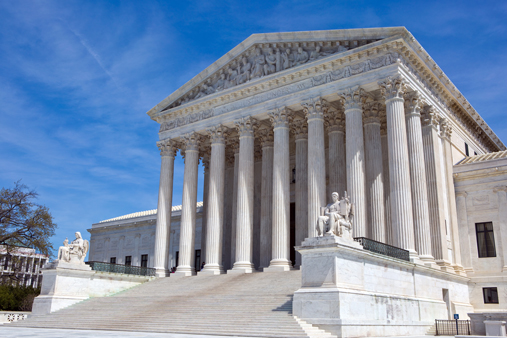On Thursday, Aug. 15, 2013, the Sixth Circuit upheld the NLRB’s controversial 2011 Specialty Healthcare decision which many have argued will promote “micro-unions” in the workplace and make it easier for unions to dictate the group of employees they wish to organize.
Specialty Healthcare (357 NLRB No. 83), involved a union petitioned-for unit consisting of only certified nursing assistants (CNAs) and excluding other non- supervisory service and maintenance employees such as resident activity assistants and cooks. For many years, the Board had applied the standard set forth in Park Manor Care Center, 305 NLRB 872 (1991), on this issue, considering whether the community of interest of the employees the employer sought to include was “sufficiently distinct from those of other employees” to justify excluding them from the bargaining unit. In Specialty Healthcare, the Board increased the burden on employers in these situations and held:
[I]n cases in which a party contends that a petitioned-for unit containing employees readily identifiable as a group who share a community of interest is nevertheless inappropriate because it does not contain additional employees, the burden is on the party so contending to demonstrate that the excluded employees share an overwhelming community of interest with the included employees.
The union filed an unfair labor practice charge after the employer subsequently refused to bargain. After the employer was found to have violated the NLRA, it petitioned for review of the NLRB’s determination that the bargaining unit of the CNA’s was appropriate.
The Sixth Circuit noted that the Board took an unusual interim step before deciding the substantive issue: inviting interested parties to weigh in regarding the potential impact if the Board overruled Park Manor. The Court also found that Specialty Healthcare was not a dramatic departure from prior Board decisions, was based “on some of the Board’s prior precedents” and explained its reasons for doing so. Lastly, the Court observed that the NLRA provides a statutory limit on the NLRB’s discretion to define collective bargaining units. It held, however, that the NLRB did not cross the line in this respect simply because it applied the standard referenced above.
What does this mean for employers going forward? The new standard for evaluating whether it is necessary to expand a bargaining unit will be difficult for employers to surmount. Accordingly, unions will more readily win elections where they “pick and choose” the classification of employees allowed to vote.
Our prior coverage of the Board’s decision can be found here.
The case is: Kindred Nursing Centers East v. NLRB, case numbers 12-1027 and 12-1174, in the U.S. Court of Appeals for the Sixth Circuit.
For more information, please contact the Barnes & Thornburg Labor and Employment attorney with whom you work, or a leader of the firm’s Labor and Employment Department in the following offices:
Kenneth J. Yerkes, Chair (317) 231-7513; John T.L. Koenig, Atlanta (404) 264-4018; Norma W. Zeitler, Chicago (312) 214-8312; William A. Nolan, Columbus (614) 628-1401; Eric H.J. Stahlhut, Elkhart (574) 296-2524; Mark S. Kittaka, Fort Wayne (260) 425-4616; Michael A. Snapper, Grand Rapids (616) 742-3947; Peter A. Morse, Indianapolis (317) 231-7794; Scott J. Witlin, Los Angeles (310) 284-3777; Tina Syring Petrocchi, Minneapolis (612) 367-8705; Janilyn Brouwer Daub, South Bend (574) 237-1139; Teresa L. Jakubowski, Washington, D.C. (202) 371-6366.
Visit us online at www.btlaw.com, and don’t forget to bookmark our blogs at www.btlaborrelations.com and www.btcurrents.com. You can also find us on Twitter at www.twitter.com/btlawle.
© 2013 Barnes & Thornburg LLP. All Rights Reserved. This page, and all information on it, is proprietary and the property of Barnes & Thornburg LLP. It may not be reproduced, in any form, without the express written consent of Barnes & Thornburg LLP.
This Barnes & Thornburg LLP publication should not be construed as legal advice or legal opinion on any specific facts or circumstances. The contents are intended for general informational purposes only, and you are urged to consult your own lawyer on any specific legal questions you may have concerning your situation.


















/Passle/6488d4630e7e25c9ac9f834a/MediaLibrary/Images/2024-07-18-19-15-33-047-669969d52008239f764a11af.png)


/Passle/6488d4630e7e25c9ac9f834a/SearchServiceImages/2024-07-17-15-17-44-967-6697e0980752df56d2441ada.jpg)
